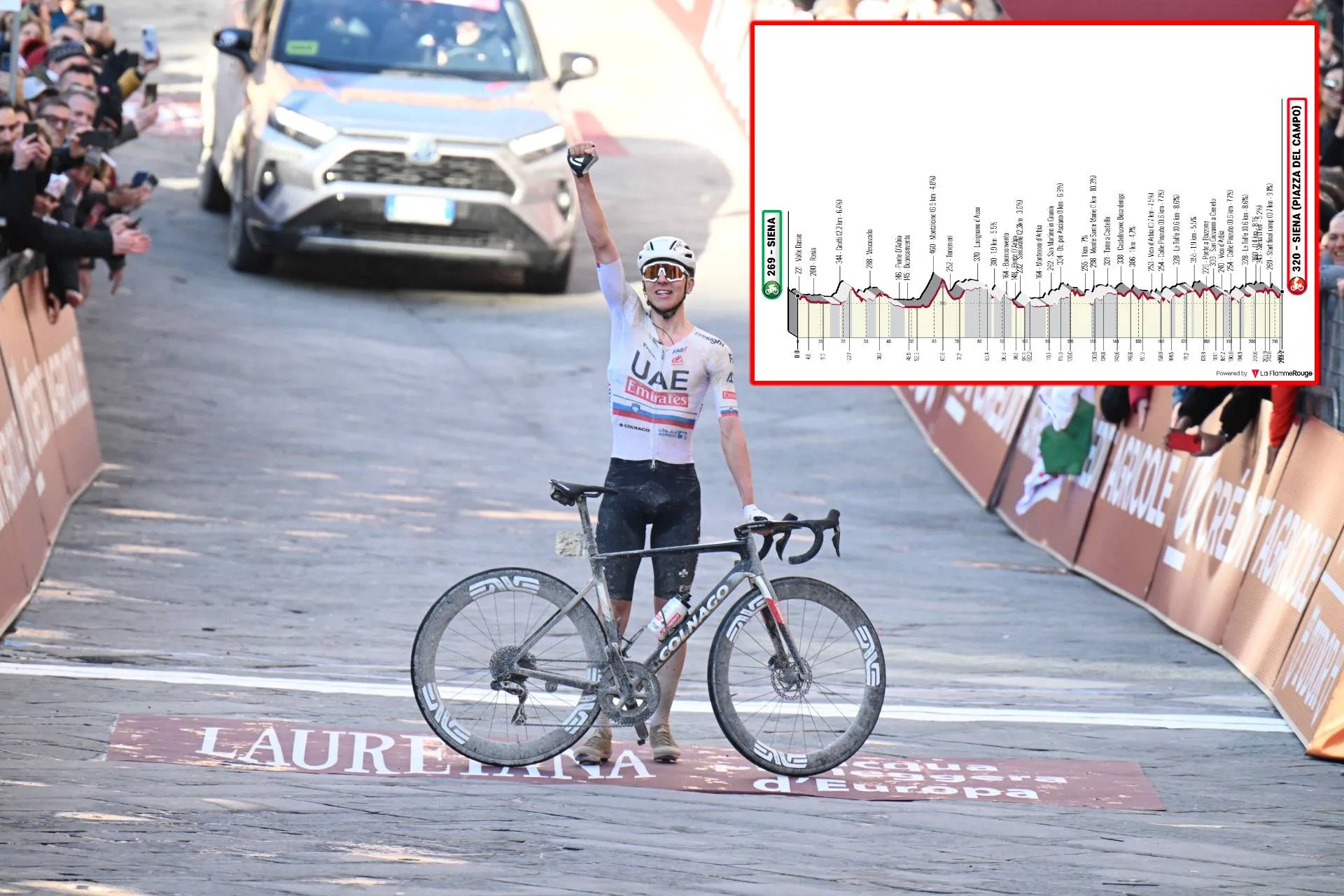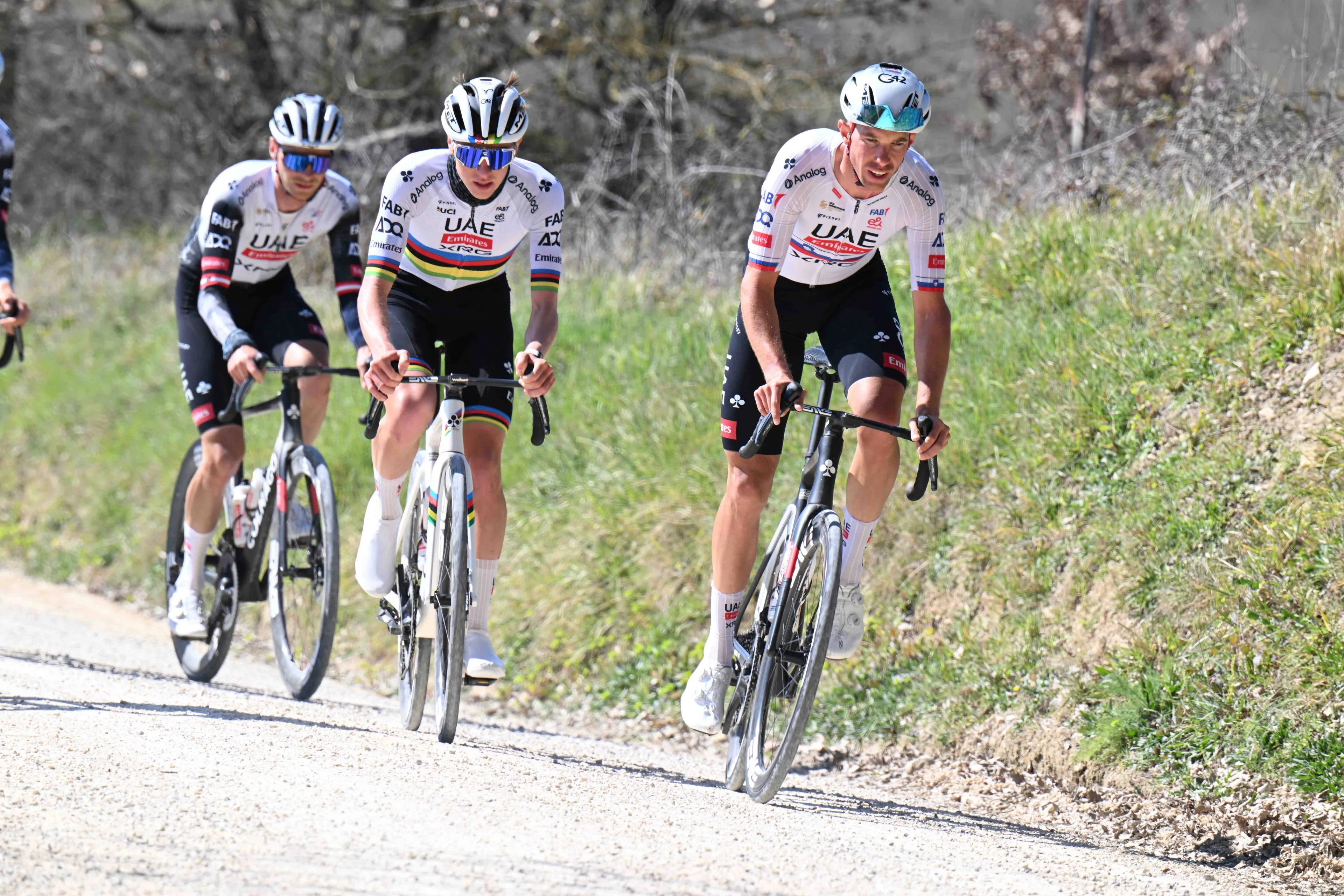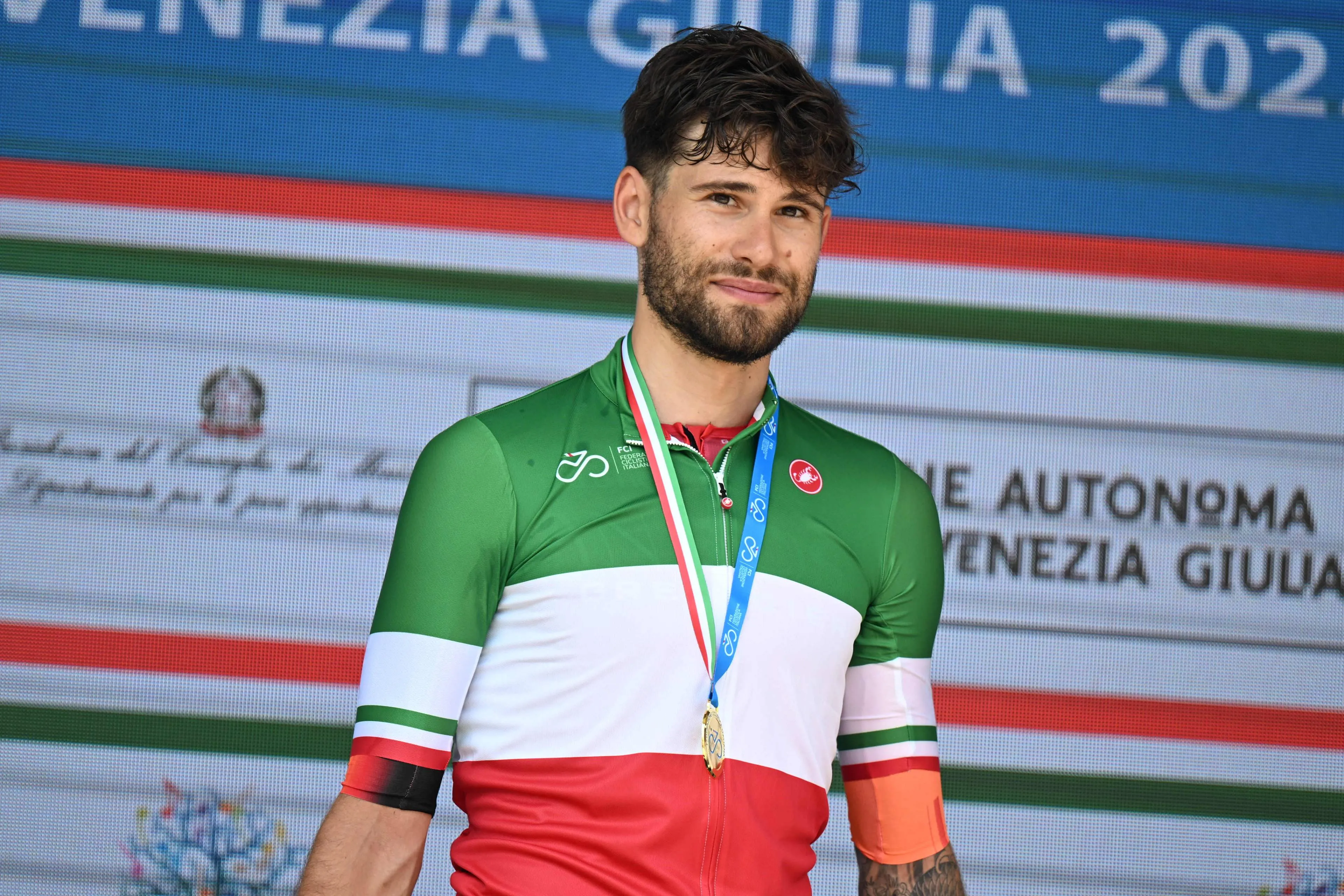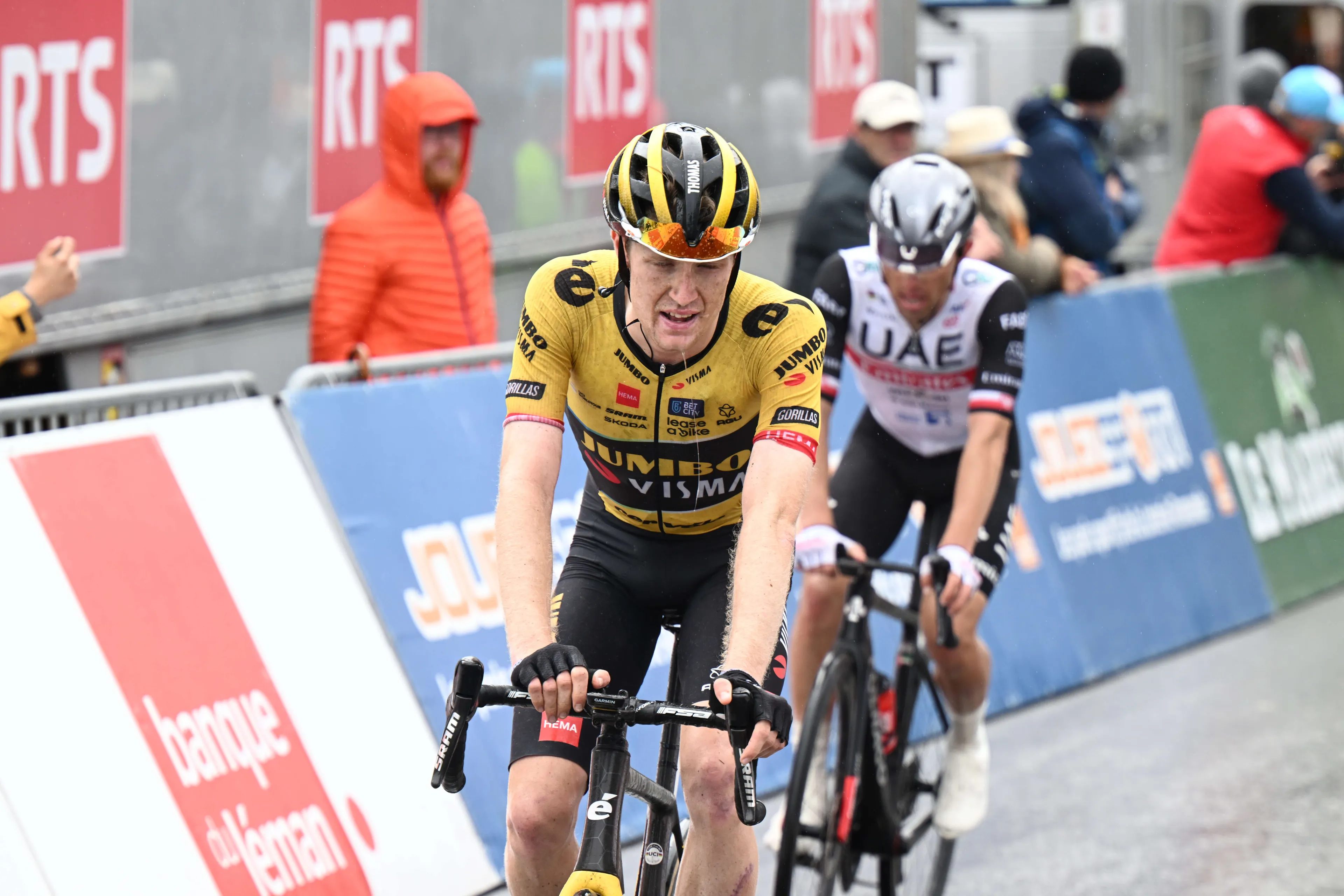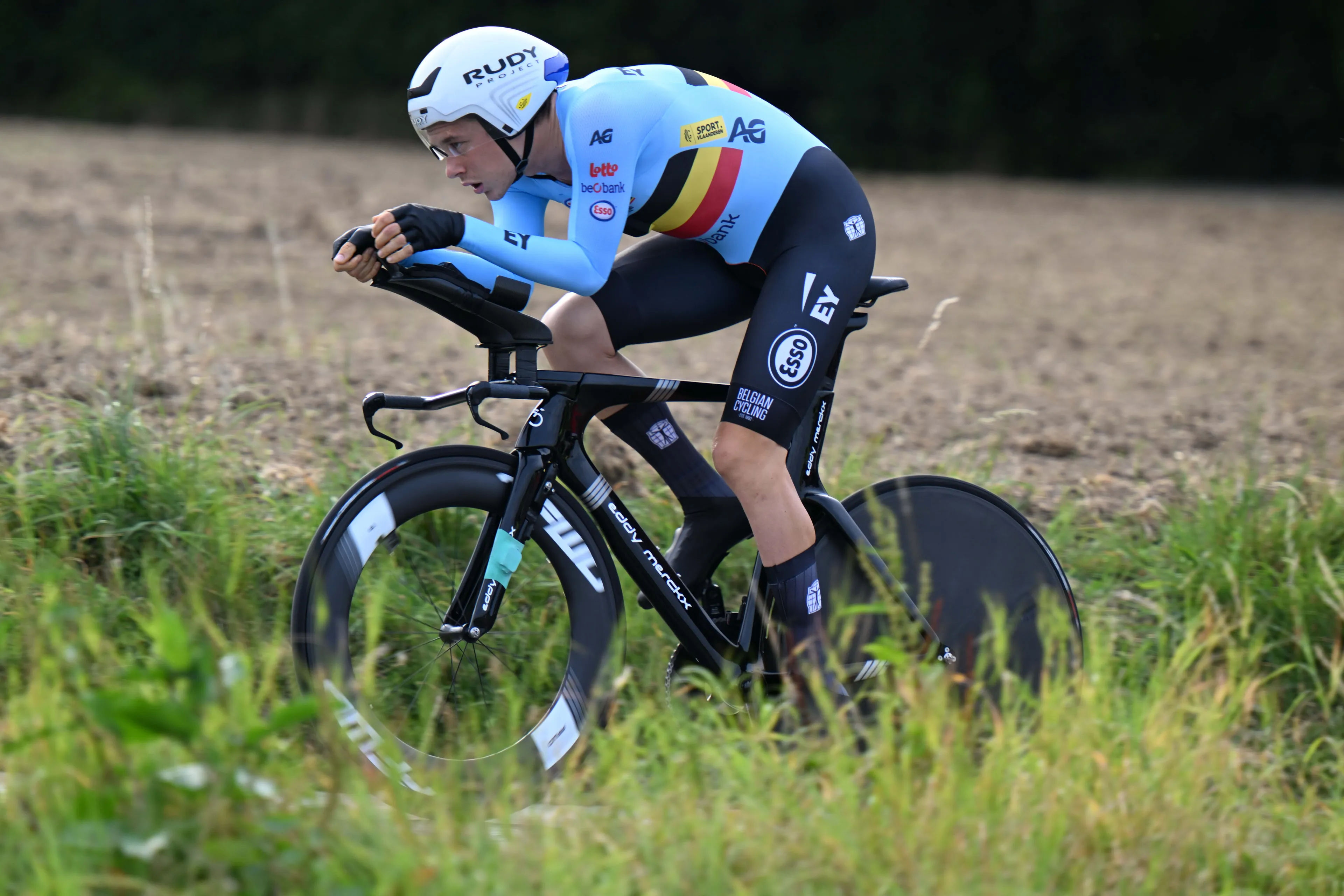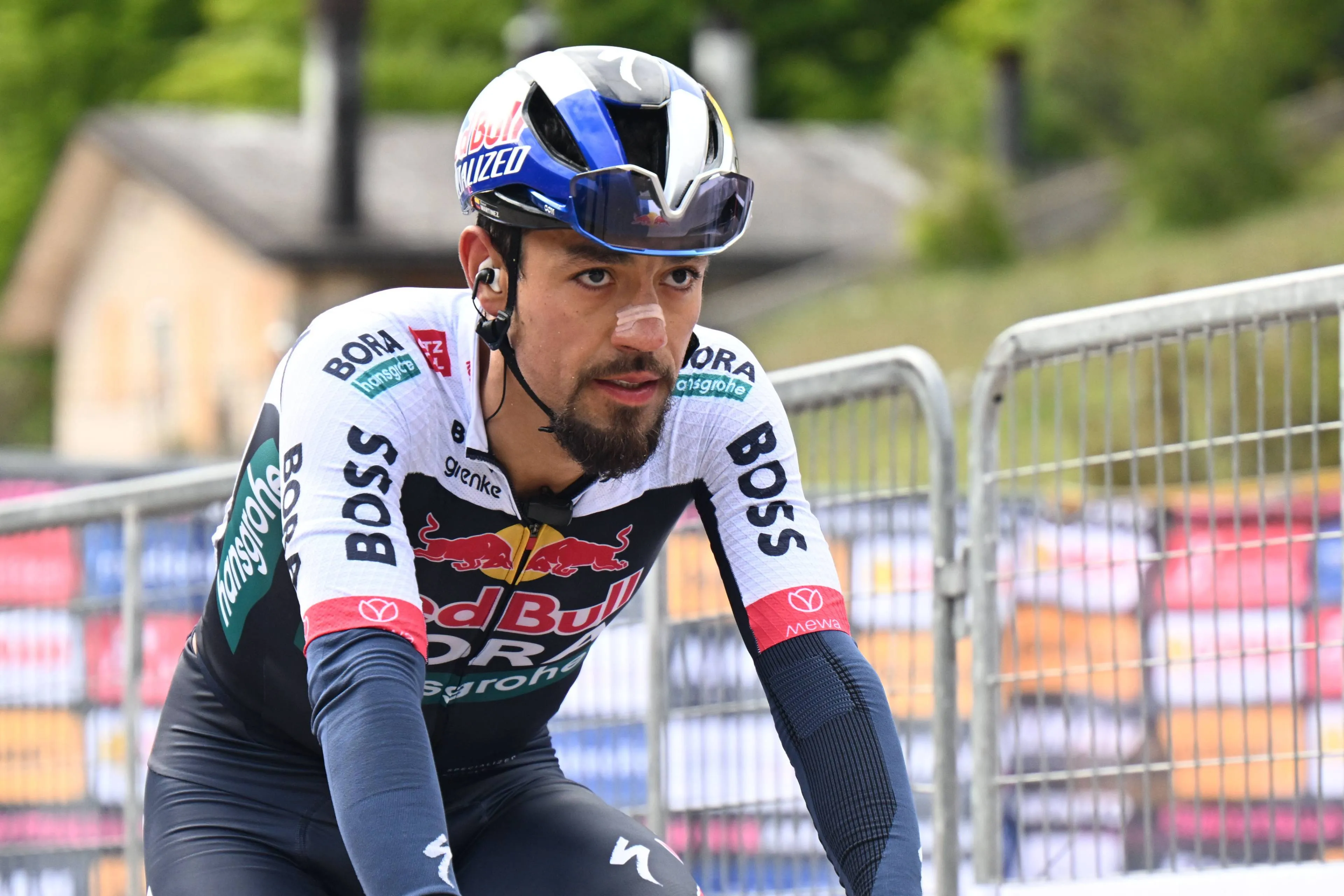Gianni Vermeersch thinks route changes may drive riders like Mathieu van der Poel away from Strade: "It has now become really difficult for a classics rider"
CyclingSaturday, 08 March 2025 at 09:00
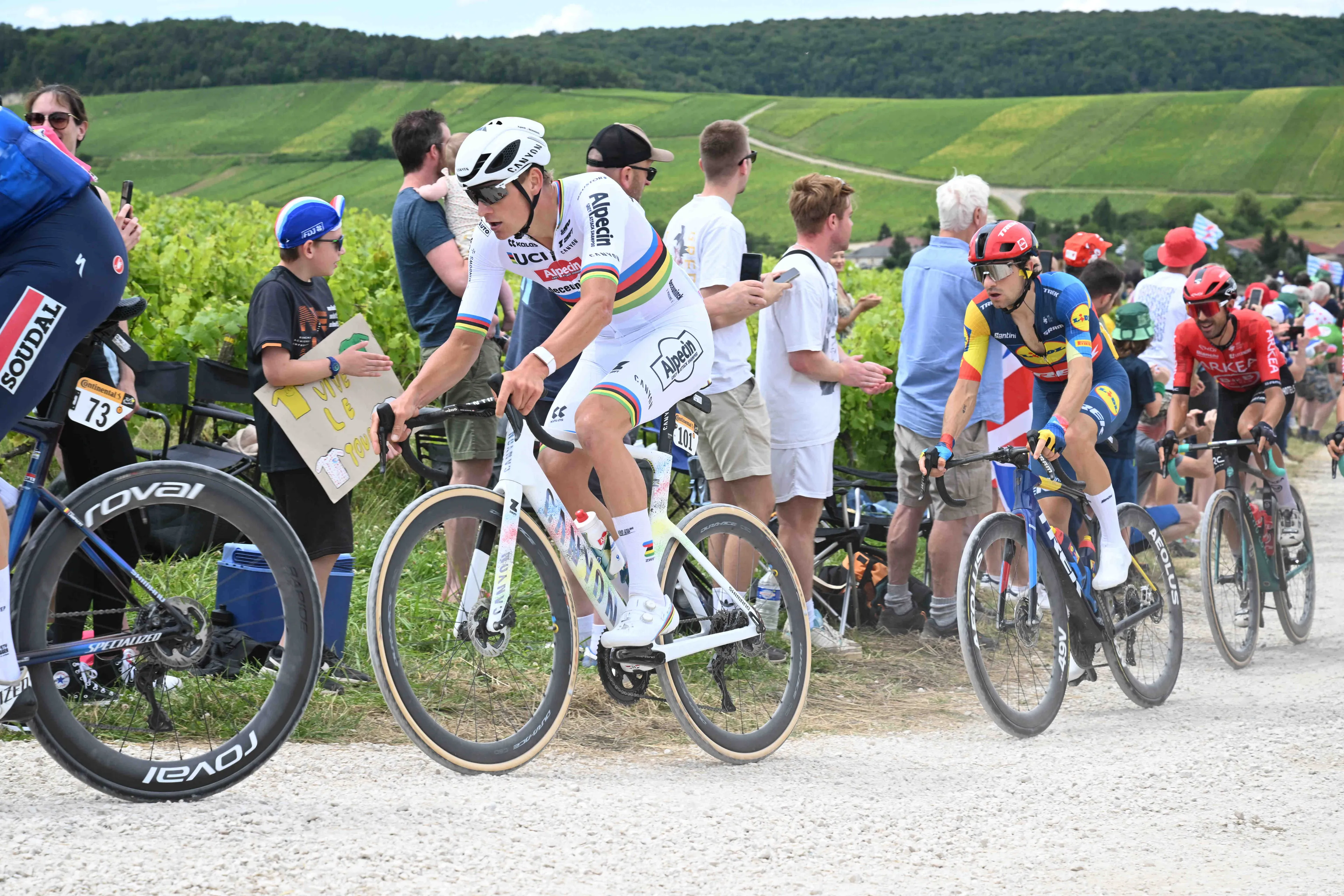
No Mathieu van der Poel nor Wout Van Aert at this year's Strade Bianche. Convenient explanations are that the race simply doesn't sit well with their spring programmes, but the truth may lie in the recent changes to the route. Since last year, the organizers added extra 30 kilometers, putting the total distance over 200 kilometers. Suddenly, the race seems to favor climber-types.
"Purely as a race, Strade Bianche is one of my favorites, but last year the organizers made it longer," says Gianni Vermeersch in an interview for IDLProCycling.com. "Now the race is 30 or 40 kilometers longer, mostly with climbs. That makes it more of a climbers’ race. It used to be a 50-50 split between climbers and classics riders."
Read also
"You would see riders like Cancellara, Stybar, Mathieu, and Wout - the more classics-oriented guys - at the front. But where I could still play a meaningful role before last year, it has now become really difficult for a classics rider to compete for a top result. That’s a bit of a shame because this was one of my favorite races."
Vermeersch will still be on the start line this Saturday, but with less ambition than before - and without his team leader Mathieu van der Poel. "Strade Bianche used to be a race where I had ambitions to compete for a podium," says Vermeersch. "But with the course changes, that ambition has shifted. I think it has become very difficult for a classics rider to get a top result here."
Cyclo-cross = Natural advantage?
There’s long been talk about the advantage cyclo-cross riders have at Strade Bianche due to their handling skills. Former winners like Van Aert, Van der Poel, Zdenek Stybar, Alaphilippe, and Pidcock all came from cyclo-cross. So does having a background in cyclo-cross help? "Cross teaches you a certain technique and riding style that helps you position yourself very efficiently," explains Vermeersch.
"Cyclo-cross is all about passing someone at the right moment - overtaking just before a turn, for example. That’s a crucial skill there, and I think that’s something that always stays with a cyclo-cross rider. It has often been an advantage for me. The fight to get to a sector is often brutal, and if you dare to brake a little later, that’s definitely an edge," Vermeersch concludes.
Read also
claps 0visitors 0
Just in
Popular news
Latest comments
- I was going to post the same comment. He just can’t catch a break.Pedalmasher20-02-2026
- Totally agree. This kid has a bright future.Pedalmasher20-02-2026
- The thing is, he never has to worry about his career because he can spend the rest of his life living rent-free in your head.antipodeanpedalfan20-02-2026
- That's true, but you can't count out a resurgence from him later like Vingegaard did in 2025 (although he was 10 seconds behind, not 30)
 Rafionain-Glas19-02-2026
Rafionain-Glas19-02-2026 - Lipowitz ddn't really keep up to the big boys today either.....mobk19-02-2026
- Yes, the guy is no fluke. Even if he fails to improve over the next 15 years he’ll do damage. That young blood is going to keep the establishment working hard.Mistermaumau19-02-2026
- This excuse is harmless, just quaint and amusing. The excuse I really disliked was when he accused a mechanic of improperly adjusting his saddle, endangering the mechanic's job: blaming others for your own limitations is a serious matter.
 maria2024202419-02-2026
maria2024202419-02-2026 - ok so this is impressive - I trashed this guy all winter, get a pro win before the anointing. against a quality field. And Onley and Riccitello look good too. fun to see young blood.mij19-02-2026
- Minor flaws.... thats like suggesting Genghis Khan was a bit aggressive with other countriesslappers6619-02-2026
- Then you carry on if that's what makes you happyslappers6619-02-2026
Loading
Write a comment
